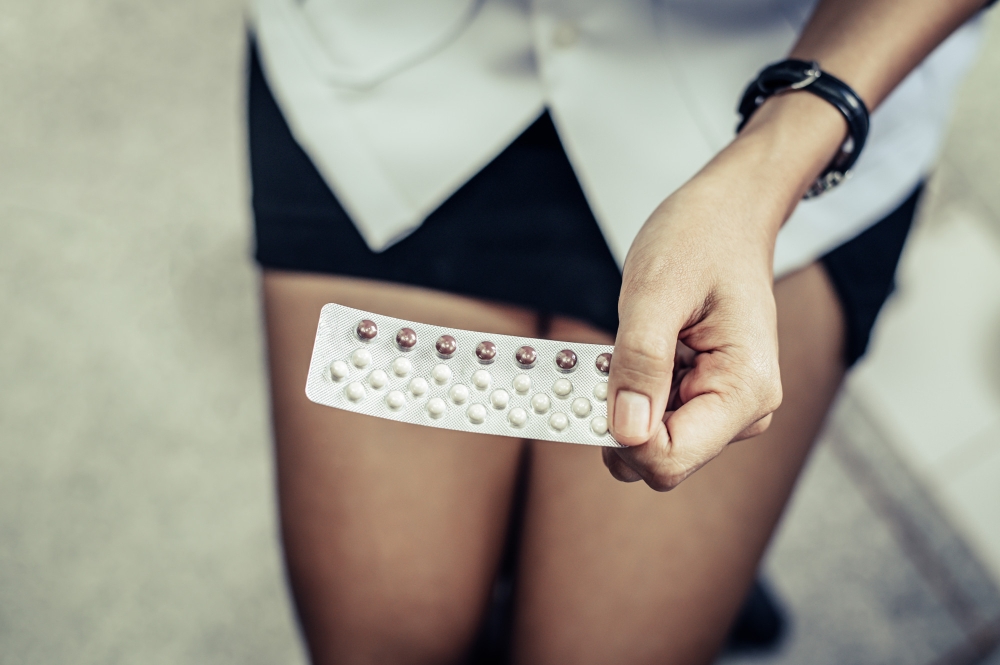Can Birth Control Affect Fertility After Stopping?


| Type of Birth Control | Effect on Fertility After Stopping |
|---|---|
| Hormonal Pills (Combined or Progestin-Only) | Typically restores fertility within 1-3 months, but some may experience slight delays. |
| IUDs (Hormonal and Copper) | Fertility usually returns almost immediately after removal. |
| Implants and Injections (e.g., Depo-Provera) | May cause delays in fertility restoration, especially injections, taking up to 10 months or more for some. |
| Patches and Vaginal Rings | Fertility often returns within a few cycles, similar to pills. |
Many people considering stopping birth control wonder whether it will affect their ability to conceive. While most types of birth control are designed to temporarily prevent pregnancy, concerns about lingering effects on fertility are common. This article breaks down how different forms of contraception can impact fertility after discontinuation and what you can expect when planning for pregnancy.
How Birth Control Affects Fertility
Birth control methods work by altering hormones or blocking physical pathways to prevent pregnancy. When these methods are stopped, the body typically needs time to adjust back to its natural hormonal rhythm. Here’s how different birth control methods can affect fertility restoration:
Hormonal Birth Control Pills:
Both combined (estrogen and progestin) and progestin-only pills prevent ovulation and change the uterine lining to inhibit pregnancy. After stopping pills, fertility usually returns within 1-3 months. While some women may experience immediate return of normal cycles, others may need a few cycles to resume regular ovulation.
Intrauterine Devices (IUDs):
Hormonal IUDs (like Mirena or Kyleena) release progestin to prevent pregnancy, but fertility generally returns almost immediately after removal.
Copper IUDs (like Paragard) create a physical barrier and don’t affect hormones, so fertility often resumes immediately after removal.
Implants and Injections:
Implants (such as Nexplanon) release hormones to prevent ovulation. Fertility generally returns quickly after removal, though for some it may take a few cycles.
Injections (like Depo-Provera) may cause a delay in the return of fertility. Since it can take up to 10-12 months for the body to return to normal hormonal cycles after the last injection, some women may experience a longer wait before ovulation resumes.
Patches and Vaginal Rings:
Similar to birth control pills, patches and vaginal rings contain estrogen and progestin, preventing ovulation and creating changes in cervical mucus. After discontinuing these methods, fertility usually returns within a few cycles.
How Long Does It Take for Fertility to Return?
While most people experience a rapid return of fertility within 1-3 months after stopping birth control, individual factors such as age, underlying health, and the type of contraception used may affect how quickly the body adjusts.
- Immediate Return: Non-hormonal methods like copper IUDs allow for immediate fertility upon removal, as they don’t alter hormonal levels.
- Gradual Return: Hormonal methods generally allow fertility to return within a few cycles. However, it’s normal for some women to experience irregular cycles during this transition as hormone levels stabilize.
- Delayed Return: The injection (Depo-Provera) is known to cause a longer delay in fertility restoration. For some, it can take up to a year to resume regular ovulation after the last dose.
Common Myths About Birth Control and Fertility
There are many myths surrounding birth control and its effects on long-term fertility. Here are a few clarifications:
- Birth Control Doesn’t Cause Infertility: Most forms of birth control do not cause permanent infertility. Delays in conception are typically related to the time it takes for hormones to regulate, rather than long-term impacts on reproductive health.
- No “Build-Up” of Hormones: Hormones from birth control don’t accumulate in the body. Once you stop using hormonal contraception, the hormones leave the system relatively quickly, allowing natural cycles to resume.
- Age-Related Fertility Decline Is Normal: Fertility declines naturally with age, especially after 35. Any delays in conception after stopping birth control are likely due to natural age-related factors rather than the effects of contraception.
Tips for Regaining Fertility After Stopping Birth Control
If you’re planning to conceive after stopping birth control, there are steps you can take to support fertility:
- Track Ovulation: Tracking ovulation through methods like basal body temperature, ovulation predictor kits, or monitoring cervical mucus can help determine when your body returns to regular cycles.
- Healthy Lifestyle Choices: A balanced diet, regular exercise, and reducing stress support hormone balance and reproductive health.
- Consult a Healthcare Provider: If cycles haven’t returned to normal after several months or you have specific concerns about fertility, consult a healthcare provider for guidance.
Conclusion
For most people, fertility resumes relatively quickly after stopping birth control, though timelines vary depending on the type of contraception. While hormonal adjustments may cause temporary delays, birth control itself does not cause long-term infertility. Understanding how different contraceptives impact fertility can help manage expectations and support family planning.
Contact Us if you have questions about birth control, fertility, or planning for pregnancy. We’re here to help with accurate, supportive information.
FAQs
How long does it take to get pregnant after stopping birth control pills?
Most people conceive within a few months after stopping pills, though it can take some time for cycles to regulate.
Does the IUD affect long-term fertility?
No, fertility typically returns immediately after IUD removal, whether it’s hormonal or copper.
Are there any permanent effects of birth control on fertility?
No, birth control does not cause permanent infertility. Temporary delays in fertility are due to hormonal adjustment.
Can the Depo-Provera shot cause longer delays in conception?
Yes, it may take up to a year for fertility to return after the last injection.
Should I consult a doctor if I don’t conceive immediately after stopping birth control?
It’s normal for conception to take time, but if you’re concerned or have underlying conditions, a healthcare provider can offer guidance.



